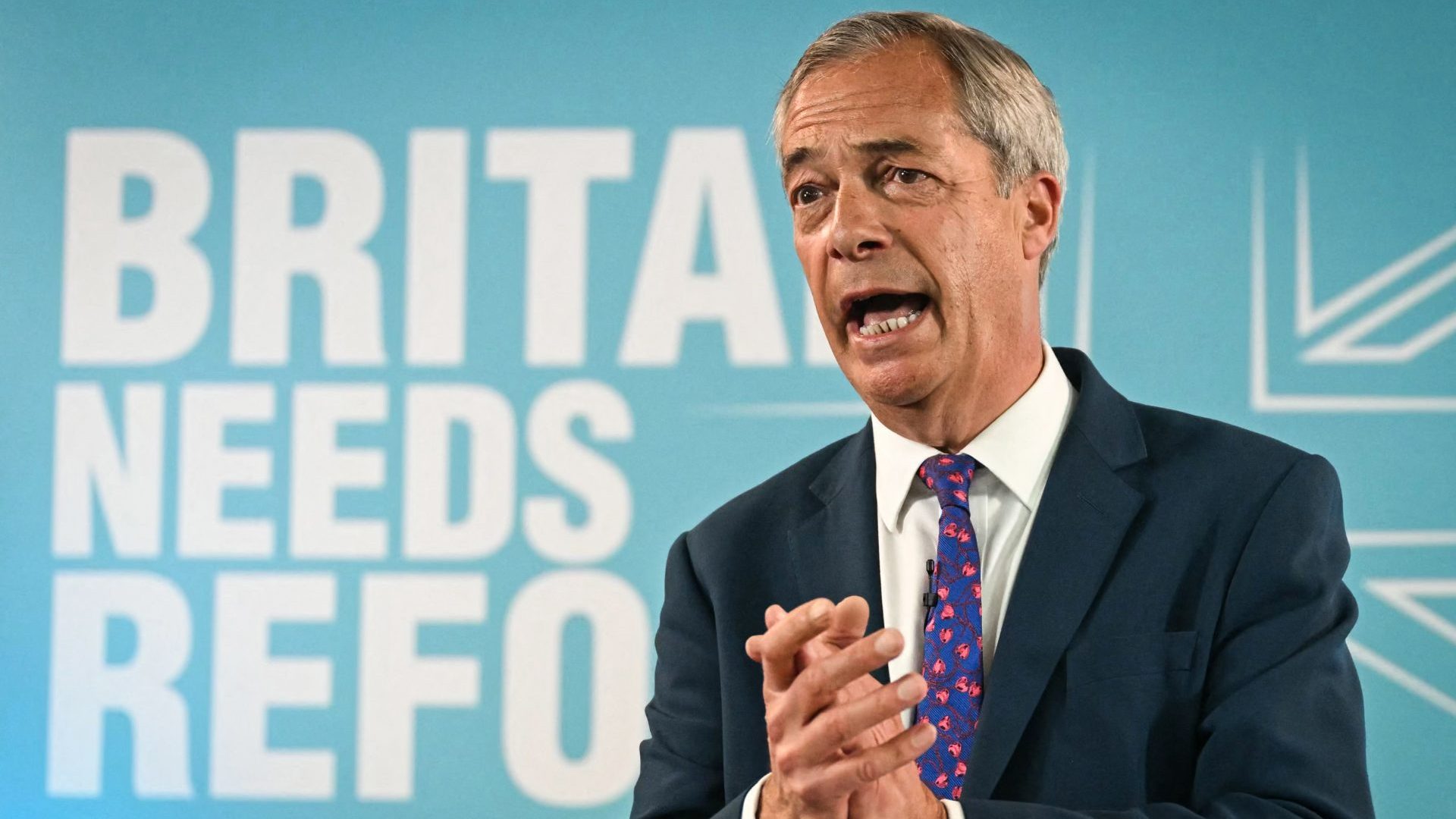There was a mantra in the Seventies, when the Northern Ireland Troubles were at their worst: don’t give the terrorists the oxygen of publicity. In other words, stifle ideas and words that might not only cause harm, but also endear more people to the cause.
In those days the press showed a greater capacity for restraint than it does today – where the argument “it’s all over the internet anyway” is used to counter almost any plea not to publish something. There was, for example, an industry-wide understanding that details of kidnappings should not be reported until the hostage had been safely returned.
Nowadays, the very notion of orchestrated suppression of anyone’s opinion would bring outrage. Free speech! Wokery! Democracy! But sometimes you can’t help but hanker after that “don’t give them the oxygen of publicity” era.
It’s Farage, of course. The pied piper of nonsense, blowing on his whistle and luring the entire mainstream media along behind his army of crank candidates and unworkable ideas.
Reform is not a party, it’s a business. Farage may finally win his seat “representing” Clacton (the quotes are there because if he does win, he most certainly won’t be doing any representing of his Essex constituents). If he does, he will likely cut a lonely figure in the Commons. He won’t be leading the opposition, as he has claimed, because there will without doubt be more Tory and LibDem MPs than those flying the Reform flag.
We all know this. The press knows this. The BBC knows this. Yet they can’t help themselves. One peep on his whistle and they all come running. A manifesto launch in Wales? The BBC coincidentally decided to bring its main news bulletin from Wales, and leads it on what Farage has to say. The corporation – which bears heavy responsibility for his prominence, thanks to his many appearances on Question Time – had been doing his job for him all day, starting with the key 8.10am interview slot on the Today programme.
The Tories plead “Don’t vote for Reform, you’ll let Labour in for a generation”. The Tory press duly reports the plea – and then gives over page after page to Farage’s “contract” with the people. One opinion poll puts Reform a point ahead of the Tories and he’s demanding a “head to head” debate with Keir Starmer. It’s baloney. Ignore him. But, no, there he is as a page lead: “Look at me, I’m the man of the moment”.
The strange thing is, the broadcasters and newspapers know they’re being played, but they have no collective willpower, no sense of proportion. “But he’s posing an existential threat to the Tory party,” they say. “He’s the one that will facilitate a Labour super-majority and then where shall we end up?” It’s all weaselly excuse-making. They could do their job and focus on the real parties who might actually form the real opposition if the Tories are wiped out.
The Greens are unlikely to achieve many, if any, more seats than the Reform lot. But the LibDems surely will. How about looking beyond their leader’s very effective attention-grabbing stunts and into their policies?
Let’s start by comparing coverage of the Lib Dem and Reform manifestos. The Lib Dems were first out of the blocks with theirs last week. Did they get the 8.10 Today interview? No. That went to Paul Johnson of the Institute for Fiscal Studies to give his opinion on whether their tax figures added up.
Did they get a page lead in the Sun or Express? Nope, just a picture of Davey on a rollercoaster and a few words about dragging us back into Europe. The Mail and Telegraph went a little better with a page lead and sketch – but only “better” in the sense of more space. It was snideness all the way from both, with no breakdown of policy.
Now look at what the Tory papers – the ones that so fear Reform will destroy their dear old party – made of Farage’s launch. The Mail had a spread on Reform’s “fantasy economics”, which included a point-by-point breakdown of policies, plus a full page of Andrew Neil on the “crackpot” contract and a leader decrying the party as a one-man band.
The Express, too, had a spread – in true house-style form, reporting the contents of the manifesto through Rishi’s eyes. It also had a policy breakdown, an oped, by former Boris Johnson aide Guto Harri urging readers “Don’t be fooled by megaphone-loving Nigel’s empty vows” (you couldn’t make it up), and a leader repeating the warning “Vote Reform, get Labour”.
The Telegraph had a page on the pledge to scrap the TV licence fee with a sketch and a top leader on Reform’s threat to the Conservative party, while the Sun led its politics spread with “Nigel: I’ll stop boats in 100 days”.
To cap it all, the Guardian actually led on “Reform accused of cut and spend manifesto ‘that doesn’t add up’.” Of course it doesn’t add up, you ninnies. It’s not supposed to. It’s supposed to grab attention and you’ve fallen for it.
That last Guardian headline is a further example of “it doesn’t matter what they’re saying, so long as they’re talking about you”. It’s all about worming your way into the public brain.
Another comes in yesterday’s Times splash, where Michael Gove is reported to be urging folk at CCHQ to keep banging on about Labour’s “£2,000 tax”, likening it to the infamous £350m on the side of that bus.
Please excuse a bit of “all about me” journalism here: I recall watching Gove on a TV referendum debate in 2016 that included two memorable moments. First, he said that if we left the EU, we “could” remove VAT from energy bills. Of course we “could”, but who really thought we “would”? Second, he robustly defended that £350m figure, even though it had been comprehensively debunked. He was masterful, ever-courteous, ever reasonable and utterly dishonest. I turned away in despair, thinking “He’s just won the vote for Brexit.”
Eight years on, that Times story reports that he is saying: “In 2016, people were only talking about one number and now people are only talking about one number – the £2,000 tax rise.” Truth doesn’t come into it. It’s all about lodging yourself or your ideas in people’s heads.
Trump and Brexit should finally have taught us that you can’t fight emotion with facts, that people don’t like to be shown that they’re wrong. These are truisms that the Brexit press understood and used to pull us out of Europe. So they should know what they’re doing with all this Farage fluff. If they were really concerned about what Reform might do to the Tory party, they’d shut up about it.
The fact that they don’t suggests that they don’t really believe there’s a risk that Labour will be in power for generations – and that they rather like the notion that Farage is peddling: that he is positioning himself to win the 2029 election.
With or without the rump of the Conservative party in tow, his “fanciful” manifesto contains an awful lot of “policies” they’d dearly like to see enacted. And, if they’re lucky (and the country is not), Suella and Kemi will go along for the ride and make it happen.










